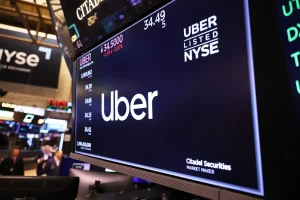Michael Hodgson, Employment Law Solicitor at Thorntons, comments on the attempt by Deliveroo couriers to gain union recognition.
A number of Deliveroo couriers have announced they are seeking legal action in the hope to achieve trade union recognition and other workers’ rights. This marks the first serious union attempt to challenge the so-called gig economy following October’s employment tribunal for taxi service Uber.
The Uber case established that the company’s drivers are workers for employment law purposes and not self-employed.
Given the considerable publicity given to the decision, it is hardly surprising that others working in the gig economy would look to test whether they too could benefit from the Uber decision.
While Deliveroo and Uber have different commercial focuses, both have traditionally categorised those who work for them as independent contractors. To justify this, both companies argued they merely provided a platform through which individuals could further their own businesses: Uber by identifying taxi customers and Deliveroo by providing fast food delivery customers.
For Deliveroo riders, this means they are paid only for deliveries actually completed. This differs from a traditional delivery driver, employed by a company, who is paid for their time spent carrying out deliveries.
From Deliveroo’s perspective, being able to categorise their riders as self-employed represents a significant cost-saving. They do not need to provide riders any annual leave, the statutory minimum wage, the protections of whistleblowing legislation, the right to claim unfair dismissal or trade union recognition rights.
Whether Deliveroo will adhere to the union’s request or be compelled by an employment tribunal is yet to be seen. Either way it demonstrates that the tide may be turning against the gig economy and unions will not stand silent as those who are truly workers are deprived of the most basic employment rights.
(Source: Thorntons)




















